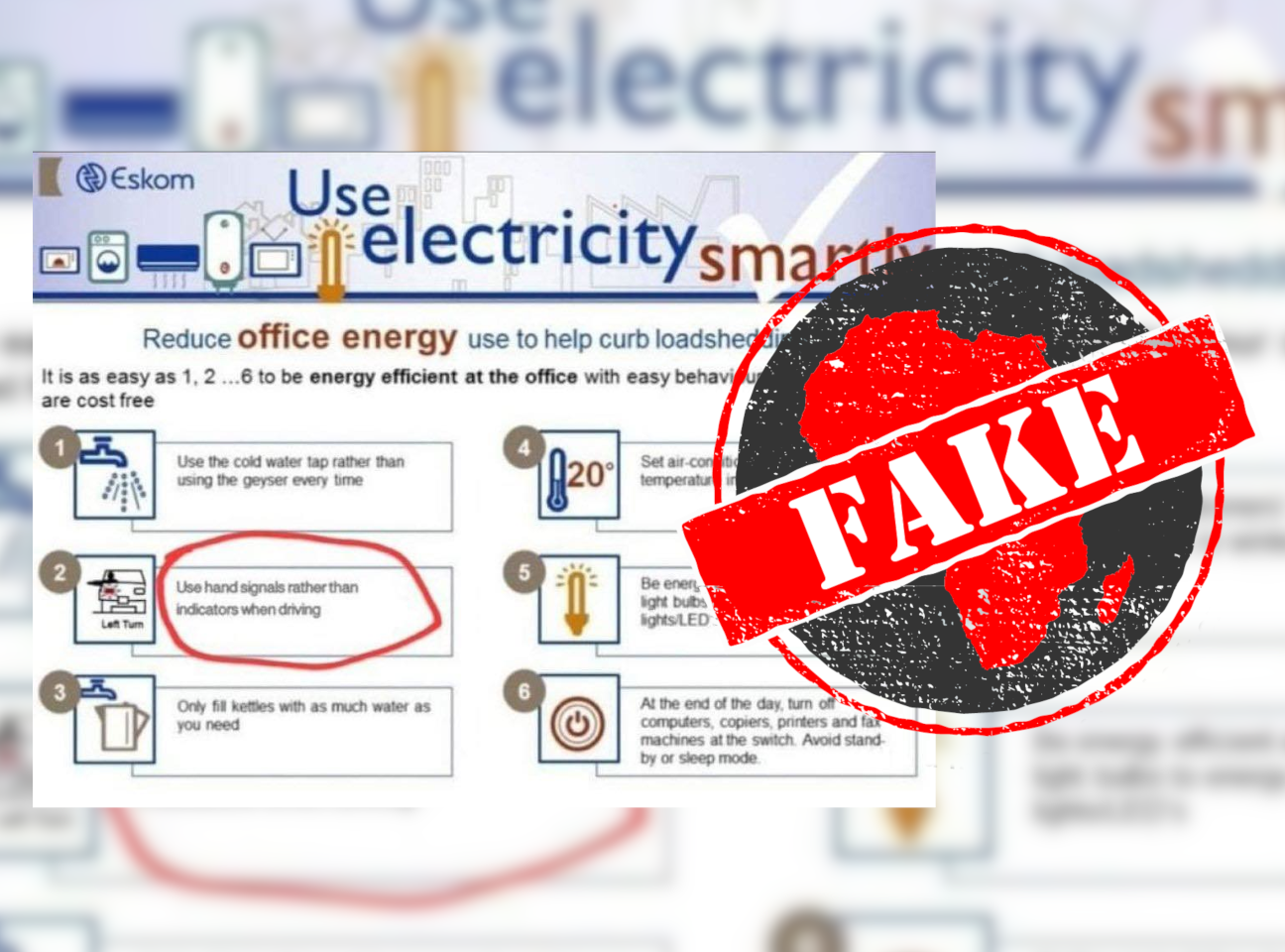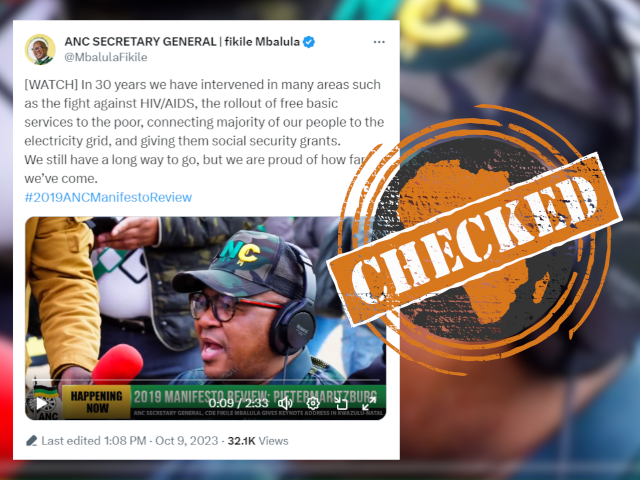IN SHORT: South Africans have a lot to blame on Eskom, but the power company didn't recommend using hand signals while driving to save electricity. A graphic from a real campaign has been digitally manipulated.
Since 2008, South Africa’s state-owned electricity utility Eskom has implemented increasingly frequent electricity blackouts, euphemistically referred to as load shedding. This is meant to prevent the r grid from collapsing after years of declining generating capacity.
But has the power utility suggested that South Africans should “use electricity smartly” and “help curb loadshedding” by using hand signals instead of their cars’ indicators while driving?
That’s what a graphic shared on Facebook seems to suggest.

Facebook posts include an edited image from ‘use electricity smartly’ campaign
Several Facebook users have shared the graphic. It is branded with the Eskom logo and has the headline “Use electricity smartly”. It lists six “behaviour changes that are cost free” to reduce energy use in an office.
The second change, circled in red in the Facebook posts, says: “Use hand signals rather than indicators when driving.” (This would have no effect on the electricity grid, as a car’s lights are powered by its battery.)
The phrase “Use electricity smartly” seems to be a red flag that this is not an official Eskom campaign. The word “smartly” typically refers to neatness or formality, rather than cleverness. In our guides to spotting false information, Africa Check has often recommended looking for spelling or grammatical errors as a warning sign that information does not come from a trustworthy source.
But Eskom really does have a campaign called “use electricity smartly” for which it has produced promotional material.
However, the real campaign doesn’t suggest using hand signals instead of indicators when driving. The second suggestion in Eskom’s real office energy usage poster is to switch off the lights when leaving the office.
Eskom has produced several similar graphics as part of the campaign. Some repeat the same suggestions, like turning off lights, and some contain minor errors, like this poster, which uses 36 icons to indicate that a kilowatt hour of electricity can toast 24 slices of bread.
None of the real Eskom posters include the tip about using hand signals while driving, which could be a recipe for accidents.
Republish our content for free
For publishers: what to do if your post is rated false
A fact-checker has rated your Facebook or Instagram post as “false”, “altered”, “partly false” or “missing context”. This could have serious consequences. What do you do?
Click on our guide for the steps you should follow.
Publishers guideAfrica Check teams up with Facebook
Africa Check is a partner in Meta's third-party fact-checking programme to help stop the spread of false information on social media.
The content we rate as “false” will be downgraded on Facebook and Instagram. This means fewer people will see it.
You can also help identify false information on Facebook. This guide explains how.



Add new comment